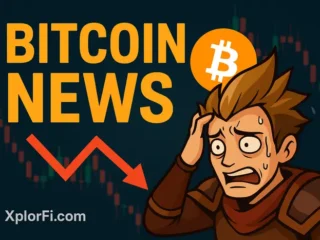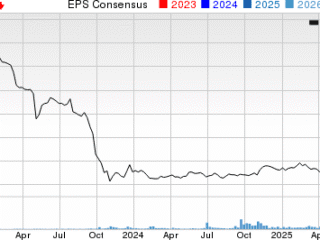What Is a Pending Transaction 2025

Understanding Pending Transactions and Their Impact on Your Account
A pending transaction refers to a financial activity that has been authorized but not yet fully processed or posted to your account. This means that while the transaction is recognized by your bank or credit card company, it hasn’t yet been completed. Understanding how these transactions work can help you manage your finances more effectively and avoid overdrafts or unexpected fees.
How to Check for a Pending Transaction in Your Account
Pending transactions may appear differently depending on whether you’re using a debit card or a credit card.
Debit Cards
With a debit card, the bank places a hold on the specific amount in your account. This hold ensures that you have enough funds available to cover the transaction. The hold will reduce your available balance, even though the actual money hasn’t been deducted yet. Once the merchant processes the transaction, it will be posted to your account, and the funds will be deducted from your balance.
Credit Cards
For credit cards, a pending transaction appears as a temporary charge against your available credit limit. This reduces your credit limit, but no money has left your account. After the transaction is processed, it will be reflected in your statement balance.
Common Reasons Transactions Stay Pending
There are several reasons why a transaction might remain in a pending status:
- Merchant Delay: Some merchants, such as hotels, gas stations, and restaurants, may take time to process transactions, especially if tips or additional charges are involved.
- Weekends or Bank Holidays: Transactions processed outside of business days may take longer to complete.
- High-Risk Transactions: Large amounts or unusual purchases may require additional verification.
- Temporary Authorizations: Certain vendors, like gas stations, may place a temporary hold on funds until the transaction is finalized.
- Glitches in Payment Systems: Technical issues with payment processors can also cause delays.
What Is a Posted Transaction?
A posted transaction is one where the full amount has been charged and deducted from your account. It will appear in your account history and be reflected in your balance. For credit cards, this charge will show up on your monthly statement.
Differences Between Pending and Posted Transactions
The key difference between pending and posted transactions lies in their processing status. A pending transaction is authorized but not yet finalized, while a posted transaction is fully processed and recorded in your account.
How a Transaction Moves From Pending to Posted
Here’s a step-by-step breakdown of the process:
- When you make a payment, the merchant requests authorization from your bank or credit card company.
- Your bank will place the transaction amount on hold, reducing your available balance.
- With a credit card, your available credit will decrease, but no money has been taken from your account.
- Once the merchant settles the transaction, it is submitted to the payment processor.
- The transaction is then posted to your account or credit card statement once the process is complete.
How Long Does a Transaction Stay Pending?
The duration of a pending transaction can vary. Typically, it takes anywhere from a few minutes to three to five business days, depending on the bank and the type of transaction. Weekends, holidays, and the nature of the transaction can all influence the timeline.
Types of Pending Transactions
There are various types of pending transactions, including:
- Debit or Credit Card Purchases: These may appear as pending until the vendor and issuing institution settle the transaction.
- Check Deposits: Banks may place a hold on checks until they clear.
- Direct Deposits: Employer payments scheduled before payday may show as pending until credited.
- ACH or Wire Transfers: Electronic transfers may take time to post.
- Gas Station Holds: Gas stations often place holds on amounts until the final cost is known.
- Hotels: Holds are placed for the estimated stay and incidental charges.
- Online Purchases: Some vendors place holds until the item ships.
- International Purchases: Currency conversion and fraud checks may delay processing.
How Pending Transactions Affect Your Account Balance
Understanding the difference between your available balance and current balance is crucial.
- Available Balance: This is your current balance minus any pending transactions.
- Current Balance: This reflects the actual amount you can spend.
Pending transactions reduce your available balance immediately, which can affect whether future transactions go through. It’s important to monitor your available balance to avoid overdrafts and insufficient funds.
How to Avoid Insufficient Funds
To prevent issues with insufficient funds, consider the following steps:
- Keep track of your balance regularly.
- Enable low-balance alerts to receive notifications when your balance is low.
- Maintain an appropriate cushion in your account to cover unexpected expenses.
What to Remember About Pending Transactions
Managing pending transactions is essential for maintaining a healthy account balance. Always check your available balance, track scheduled payments, and keep a financial cushion. Online banking tools make it easier to monitor your account activity, set up alerts, and transfer funds when needed.
FAQs on Pending Transactions
Here are answers to some common questions about pending transactions:
Does a pending transaction mean it will go through?
Not always. A pending transaction can be declined or reversed.Are pending transactions already deducted from an account?
Yes, they are deducted from your available balance, but not your current balance.Do pending transactions come out of your account automatically?
Typically, yes, but they may take a few business days to post unless canceled.What does it mean when a deposit is on hold?
The bank may need to verify the funds, so the money isn’t yet fully available.What happens if your pending transaction says “declined”?
If a transaction doesn’t go through, it is usually returned to your account, and the funds are no longer reserved for that transaction.
Yo Xplorianz, Got spicy takes or want us to dig into your favorite project? Slide into our inbox Facebook, or tag us on X . Stay sharp, stay weird, and keep Xploring.
Disclaimer:
This article is for informational and entertainment purposes only and does not constitute financial advice. Always do your own research (DYOR) before making any investment decisions, your money, your call. Crypto’s wild, so stay sharp out there!
25 Financial Habits Through Good Money
5 Simple Ways to Ease Financial Stress Now









No Comments